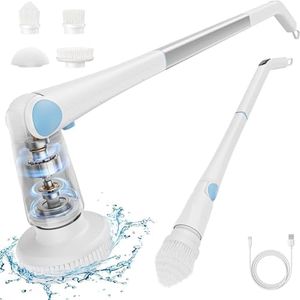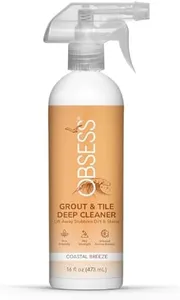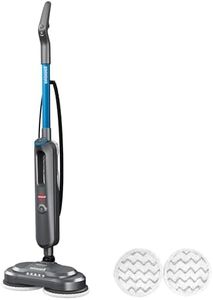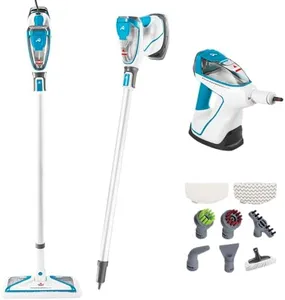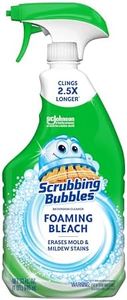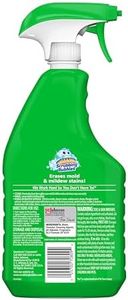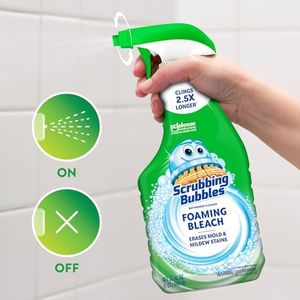10 Best Grout Cleaners 2025 in the United States
Winner
Zep Grout Cleaner and Brightener - 32 Ounce (1 Bottle) - ZU104632 - Deep Cleaning Formula Removes Old Stains From Grout
The Zep Grout Cleaner and Brightener is a liquid grout cleaner designed to tackle deep stains in grout lines, making it suitable for both novices and professionals. One of its main strengths is its strong acidic formula, which effectively removes old stains without requiring heavy scrubbing. This makes it an easy-to-use option for those looking to revitalize their tile and grout with minimal effort. Additionally, it is formulated to work on both white and colored grout lines, ensuring a pristine finish.
Most important from
2609 reviews
Clean-eez - Grout-eez Super Heavy-Duty Grout Cleaner Easy and Effective. Destroys Dirt and Grime with Ease. Safe for Colored Grout. Single Bottle and Handheld Options Available. 32 Ounce
The Clean-eez Grout-eez Super Heavy-Duty Grout Cleaner offers a powerful solution for those looking to effectively clean grout and tiles. Its professional-grade formula is designed to effortlessly remove years of dirt and grime, making it ideal for restoring the original look of your surfaces without the need for costly renovations. Notably, it is safe for use on colored grout, which adds to its versatility.
Bissell Power Fresh Steam Mop with Natural Sanitization, Floor Steamer, Tile Cleaner, and Hard Wood Floor Cleaner with Flip-Down Easy Scrubber, 1940A
The Bissell Power Fresh Steam Mop (1940A) is a versatile cleaning tool designed for sanitizing and cleaning sealed hard floors, including tiles and hardwood. One of its major strengths is its ability to eliminate 99.9% of germs and bacteria using steam, which means you don't need to use harsh chemicals. This makes it a great option for those concerned about safety and environmental impact. The mop's flip-down easy scrubber is particularly useful for tackling tough, sticky messes, making it effective for grout cleaning too.
Most important from
47581 reviews
Top 10 Best Grout Cleaners 2025 in the United States
Winner
Zep Grout Cleaner and Brightener - 32 Ounce (1 Bottle) - ZU104632 - Deep Cleaning Formula Removes Old Stains From Grout
Zep Grout Cleaner and Brightener - 32 Ounce (1 Bottle) - ZU104632 - Deep Cleaning Formula Removes Old Stains From Grout
Chosen by 1104 this week
Clean-eez - Grout-eez Super Heavy-Duty Grout Cleaner Easy and Effective. Destroys Dirt and Grime with Ease. Safe for Colored Grout. Single Bottle and Handheld Options Available. 32 Ounce
Clean-eez - Grout-eez Super Heavy-Duty Grout Cleaner Easy and Effective. Destroys Dirt and Grime with Ease. Safe for Colored Grout. Single Bottle and Handheld Options Available. 32 Ounce
Bissell Power Fresh Steam Mop with Natural Sanitization, Floor Steamer, Tile Cleaner, and Hard Wood Floor Cleaner with Flip-Down Easy Scrubber, 1940A
Bissell Power Fresh Steam Mop with Natural Sanitization, Floor Steamer, Tile Cleaner, and Hard Wood Floor Cleaner with Flip-Down Easy Scrubber, 1940A
Foxtrot Living Grout Brush with Long Handle & Handheld Stiff Bristle Scrubber, V-Shaped Cleaner with Telescopic Handle for Easy Cleaning & Storage - Tile Floor Cleaning Brush
Foxtrot Living Grout Brush with Long Handle & Handheld Stiff Bristle Scrubber, V-Shaped Cleaner with Telescopic Handle for Easy Cleaning & Storage - Tile Floor Cleaning Brush
Goo Gone Grout & Tile Cleaner - 28 Ounce - Removes Tough Stains Dirt Caused By Mold Mildew Soap Scum and Hard Water Staining - Safe on Tile Ceramic Porcelain
Goo Gone Grout & Tile Cleaner - 28 Ounce - Removes Tough Stains Dirt Caused By Mold Mildew Soap Scum and Hard Water Staining - Safe on Tile Ceramic Porcelain
BISSELL Power Steamer Heavy Duty 3-in-1 Steam Mop and Handheld SteamShot for Indoor and Outdoor Use:Garage, Workshop, Auto, Boat, Recreational Vehicles; Windows,Outdoor Furniture and Decks,Black,2685A
BISSELL Power Steamer Heavy Duty 3-in-1 Steam Mop and Handheld SteamShot for Indoor and Outdoor Use:Garage, Workshop, Auto, Boat, Recreational Vehicles; Windows,Outdoor Furniture and Decks,Black,2685A
BISSELL SpinWave SmartSteam Scrubbing Steam Mop with Rotating Mop Pads
BISSELL SpinWave SmartSteam Scrubbing Steam Mop with Rotating Mop Pads
Rejuvenate Scrub Free Soap Scum Remover Shower Glass Door Cleaner Works on Ceramic Tile, Chrome, Plastic and More 24oz
Rejuvenate Scrub Free Soap Scum Remover Shower Glass Door Cleaner Works on Ceramic Tile, Chrome, Plastic and More 24oz
Bissell 2075A Powerfresh Slim Steam Mop
Bissell 2075A Powerfresh Slim Steam Mop
Recommended lists
Our technology thoroughly searches through the online shopping world, reviewing hundreds of sites. We then process and analyze this information, updating in real-time to bring you the latest top-rated products. This way, you always get the best and most current options available.

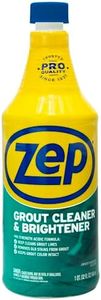
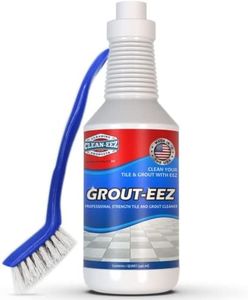
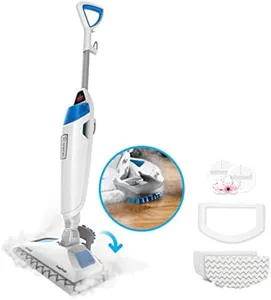











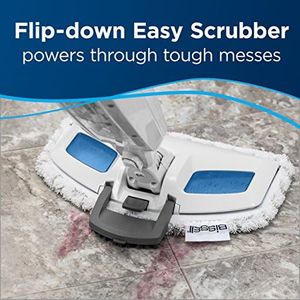
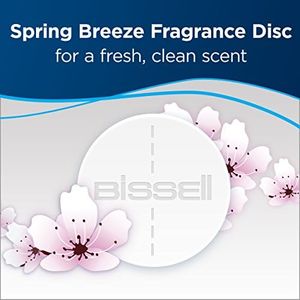
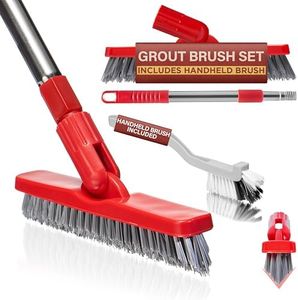
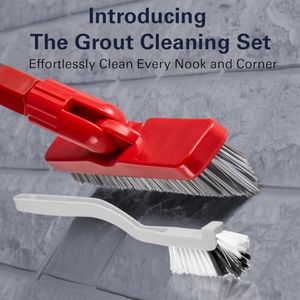

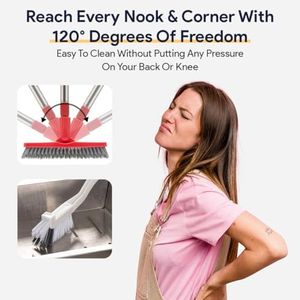

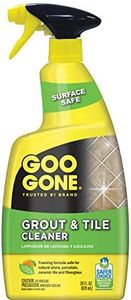





![IMPRESA [3 Pack] Shower Cleaning Brush Heads for Rubbermaid Reveal Power Scrubber - Grout Cleaner, Shower Scrubber, Kitchen Brush, Tub Scrubber - All Purpose Electric Brush Cleaner Replacement Head](https://images-proxy.bestreviews.guide/BtdjVokwa4uHLJWmL7RHQDv9-SU=/0x300/https://m.media-amazon.com/images/I/41gOziitaoL._AC_CX679_.jpg)

